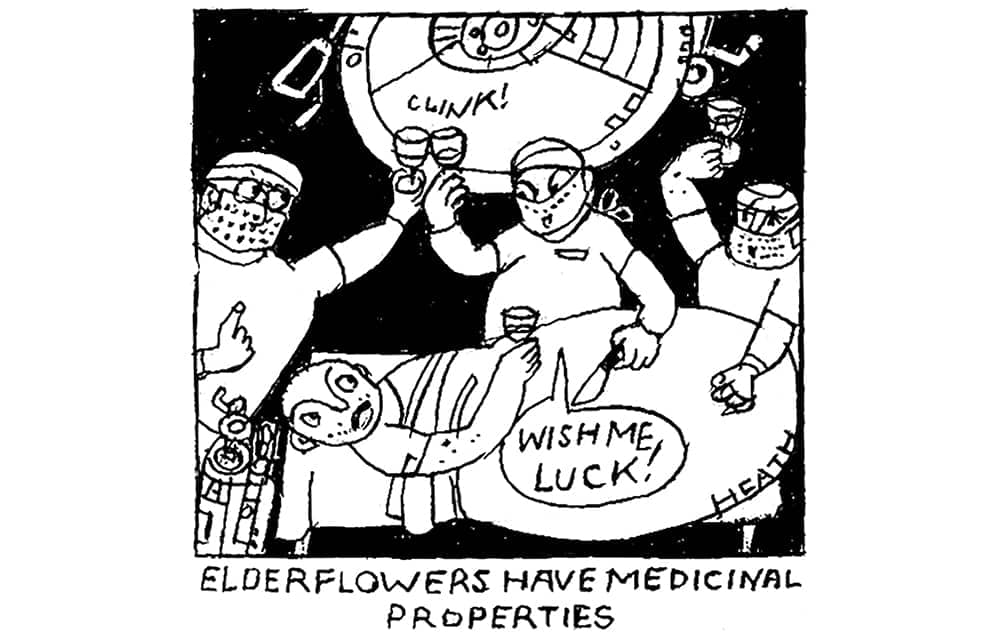There’s an old saying that English summertime begins when the frothy heads of elderflowers appear in hedgerows – and ends when the black elderberries have ripened. People have been picking these great white ‘plates’, as the flower heads are known, to make drinks since at least Tudor times. In Hannah Glasse’s The Art of Cookery Made Plain and Easy (1747) there’s a recipe for elderflower wine. But only in the past 20 years or so have elderflower cordial and pressé become ubiquitous as soft drinks.
That expansion has largely been brought about by Peverel Manners of Belvoir Fruit Farms in Leicestershire. ‘Pev’, a cousin of the Duke of Rutland, still uses his mother’s recipe. Lady Mary Manners got it from Lady Astor while staying at Cliveden, where it was always on the drinks tray. In 1984 Lady Mary started commercial production with 100 cases. The elderflowers were picked by three carloads of local children, driven around the Vale of Belvoir by Pev and his parents. Last year some ten million bottles of Belvoir’s elderflower cordial were sold worldwide. At weddings and parties, it’s no longer acceptable to be offered Britvic or Coke if you’re not drinking, and Pev is proud to have ‘built a whole new category of adult soft drinks’. Other brands abound, but he points out that most use elderflower extract rather than the real thing.
Today it takes more than a few local kids to gather the 50,000 tonnes needed to meet the global demand. Belvoir now promotes the elderflower harvest as a family day out, with influencers invited to Instagram the blossoms. Pickers are paid £3 a kilo, with the most industrious gathering up to 50 kg a day. It is a middle-class version of the Cockney hop-pickers’ annual Kentish holiday.
The elder is a curious tree, steeped in myth. It’s tricky to cultivate, preferring hedgerows and hidden glades, although it also grows prolifically in London parks. Elderflower is best picked on sunny days when the sprays are full of the heady yellow pollen that gives the drink its flavour. Don’t pick them if there’s even a tinge of brown, however, because your cordial will smell of cat’s pee.
There are four other ingredients to elderflower cordial: lemon, water, citric acid and sugar. A lot of sugar – as with marmalade, it’s probably best not to know how much. Elderflower is also delicious made into jellies and cheesecakes, or cooked gently with gooseberries, with which it has a wonderful affinity. You can add a splash of the cordial to a gin and tonic, or drink as a spritzer with white wine, soda water and a leaf of borage.
The picking season starts in late May and finishes around the end of Wimbledon. But don’t stand under an elder on Midsummer Night or the fairies will carry you off. And it’s best to thank the goddess of the Elder Mother who lives in the tree for whatever you take. Druids held the elder sacred, while herbalists have long known its medicinal properties. The bark was used to ease the pain of childbirth and the berries to treat piles. Hot cordial will soothe a sore throat, and Pev swears elderflower cures his hay fever.






Comments